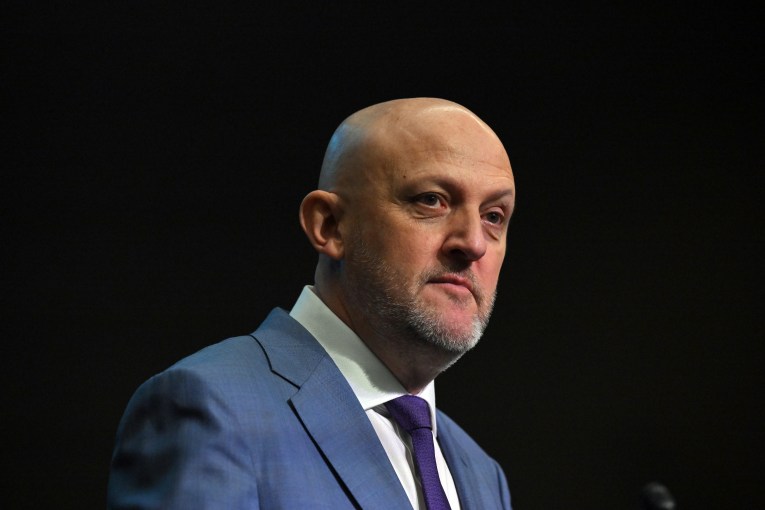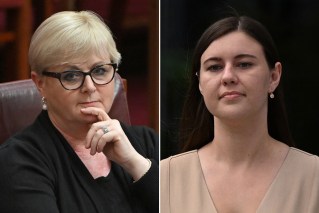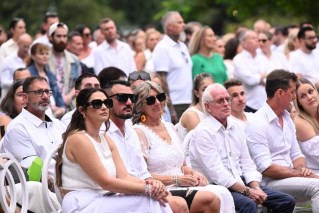Unions commission turns and bites the PM

When Prime Minister Tony Abbott established the Royal Commission into Trade Union and Governance in February 2014 with Dyson Heydon, former High Court judge and a darling of the right, in charge, he probably thought it was a political masterstroke.
What better way to air any dirty linen belonging to the ALP’s major funder and backer in the media’s eyes until the next federal election?
And when the PM’s nemesis, Labor leader Bill Shorten, was forced to squirm in the royal commission’s witness box last month Mr Abbott would no doubt have felt that his judgment at least on this issue was sound.
But now the worm has turned.
• Bill Shorten: royal commission could continue
• Heydon, PM link has long history
• Bongiorno: A caning in Canning could spell doom for PM
The commission is a damaged product. Whatever Mr Heydon does in respect of the applications being made to have him remove himself from the commission, courtesy of revelations about his having accepted a New South Wales Liberal Party speaking engagement, Mr Abbott has lost out big time. Once again the Prime Minister’s notoriously poor decision-making is coming back to bite him and his government.
A royal commission never wants to make itself the focus. Just ask those involved with the late Frank Costigan’s long-running royal commission in the 1980s into the painters and dockers and organised crime. That commission, established for all the right reasons by then-Prime Minister Malcolm Fraser, came unstuck when leaks from the commission painted media mogul Kerry Packer as a tax evader and having involvement in drug crime.
Mr Packer’s political mates leapt to his defence and the enormous achievements of the Costigan Royal Commission in uncovering widespread tax evasion in Australia were forgotten as he and his team were painted as dangerous zealots.

The Liberal Party invitation which caused all the trouble.
As the Costigan experience shows, once a royal commission’s reputation is damaged it cannot be restored. This is the case with the commission on trade unions. Mr Heydon’s seeming lack of judgment, or carelessness, in accepting a Liberal Party invitation while his commission is sitting (whether it was a fundraiser is irrelevant) and his subsequent desire to hang on to his position in spite of the controversy, means that, irrespective of what happens from here, Mr Abbott will find it extraordinarily difficult to gain any political mileage from revelations that emerge from the commission.
It is not too early to reflect more broadly on some lessons that should be learnt from the Dyson Heydon saga.
One is that it is dangerous for politicians to misuse their power to create royal commissions. Royal commissions can be very useful tools in helping to enhance our society. The Fitzgerald commission in Queensland helped to restore confidence in that state’s democracy after the appalling abuses of the 1970s and 1980s when Joh Bjelke-Petersen was premier.
The bushfires commission in Victoria, established after the horrors of the fires of February 2009, has also assisted in improving fire management strategies around the nation.

Dyson Heydon in session at the commission on unions.
But Mr Abbott’s commission on unions was about seeking political advantage in the same way that former Western Australian premier Richard Court’s 1995 commission into the Easton affair (the ALP accused Mr Court of improperly using information about a divorce case involving Ms Easton) was an attempt to cripple his predecessor Carmen Lawrence and the ALP.
In both cases it is very easy to identify the motivation behind the establishment of expensive taxpayer-funded legal exercises.
In the case of the former type of commissions, the reputations of those who head them are enhanced. Tony Fitzgerald is a hero to many in Queensland and was powerful in his criticism of the autocratic ways of the recently deposed Newman government in Queensland.
Bernard Teague in Victoria, the bushfire commission head, is regarded highly right across the political spectrum.
But Dyson Heydon, a man who has spent a lifetime building a reputation as a fine lawyer and judge, is now known to the broader community as a man of controversy. His commission has always suffered from being seen, in some quarters, as simply a political exercise by the Abbott government. This reputation has simply been magnified by the New South Wales Liberal Party invitation.
There is a lesson here.
Those lawyers who are offered a royal commission or even the less expensive option of a commission or board of inquiry need to think very carefully about whether or not they are simply being used for political purposes. If they think that is the case, or that there is a risk it might be so, then accepting the appointment will ensure that their reputation for independence is compromised.
Greg Barns is lawyer, barrister, political commentator and author. Barns was an adviser to NSW premier Nick Greiner, Federal Minister for Finance, John Fahey, and the Howard government. He was also the campaign director for the Australian Republican Movement’s referendum in 1999.








